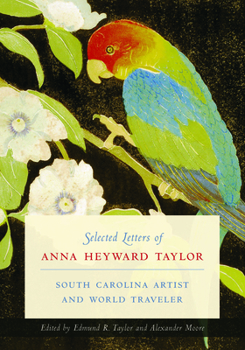Selected Letters of Anna Heyward Taylor: South Carolina Artist and World Traveler
Heavily illustrated with representative color and black-and-white artwork, the selected correspondence of Anna Heyward Taylor (1879-1956) captures the globe-trotting adventures of an intrepid South Carolina artist and a guiding spirit of the Charleston Renaissance. These letters and articles frame her intriguing life against the changing events of twentieth-century American art history and global events to illustrate how this acclaimed South Carolina original came to view and be viewed by the world.
The highly skilled artworks of Anna Heyward Taylor--especially her celebrated woodblock prints and watercolors--are well known to students and collectors of southern art. However, Taylor was also a dedicated letter writer and persistent student of art. This first publication of Taylor's letters provides a new dimension to the artist's life and works. A native of Columbia, South Carolina, Taylor received professional art training from William Merritt Chase in New York and B. J. O. Nordfeldt in New England. In Japan she studied the works of the classical printmakers and developed an appreciation of textile arts.
Drawn to roam abroad, Taylor traveled to the Far East before World War I, served in the American Red Cross in wartime France and Germany, and visited Europe both before and after the Great War. She also made lengthy excursions to British Guiana, the Virgin Islands, and Mexico to study and create colorful works of art in several media: watercolors, woodblock prints, and textiles. Between the wars and amid her travels, Taylor worked and studied at the renowned artists' colony in Provincetown, Massachusetts. In 1929 she settled in Charleston and became one of the key participants in the Charleston Renaissance. In the mid-1930s, Taylor spent time at an artists' colony in Taxco, Mexico, fully immersed in the bohemian life among the artists, which she keenly describes with an anthropologist's eye.
The accompanying illustrations and photographs add a visual element to the remarkable story of this versatile artist. The introduction and extensive annotations by southern historian Alexander Moore establish a broader place for Taylor in American art history and the intellectual life of the twentieth century.





